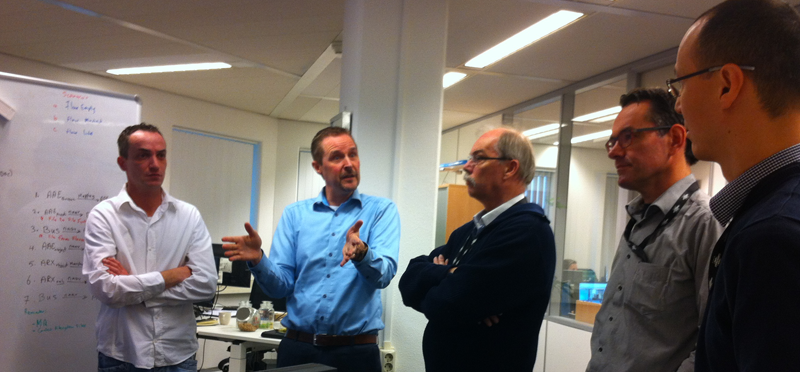What is the change agenda for 2017?
Which choices have been made for new information services? Conversations with the government, Smart Cargo Program Mainport, Schiphol and “last but not least” our customer panel have given us insight into the added value of many possible new developments. On this basis, we have compiled a list, and the (development and management) teams will in the coming months work with the highest priority on the subjects on this list:
1. Air Single Window
To comply with new regulations in mid-2017, the ECS / ICS communication must be redesigned with the ‘government’ Single Window according to the WCO data model. ECS and ICS are the first services that will be accommodated in the Single Window. We make the adjustments on the platform managed by us (the ‘industry’ Single Window), so no changes are needed for our customers.
2. eCargo Receipt API
Freight forwarders and handling agents wish to better integrate their system to the community platform. eCargo Receipt will be offered as a Application Program Interface (API). This integration consists of two phases:
Phase 1.
i.Status ECS
ii. Status FYCO (physical control)
iii. Status Aviation Security
iv. Status DGVS/RTO
v. Status Paperless
Phase 2.
Acceptance of shipments in eCR in the own handling system (ground handlers). This stays a necessary action to inform customs about the arrival of a shipment at the handlers’ premises in case of a compliance control.
3. Cargo XML messaging
Cargo XML is the IATA message standard and replaces the old Cargo IMP format. Many customers request to develop this new standard. Also these activities are divided into two phases:
Phase 1.
i. XFWB (Master Airwaybill)
ii. XFHL (House waybill Consolidation list)
iii. XFZB (House waybill)
iv. XFNM (Response)
Phase 2.
i. XFSU (Status update)
ii. XFFM (Cargo Manifest)
On the IATA website you can find more information about the Cargo XML standard.
4. FWB/FHL content checker
From one of the Smart Cargo Mainport Programme projects the need for this checker has arised. This checker may help to improve the data quality in many different chains. The content checker will initially check the content of the FWB and FHL messages according to the law and regulations of the US Government (Customs Border Protection). In this way many time and effort can be saved compaired to manually checks.
Would you like more information about this subject or our stakeholders panel, please contact us at info@cargonaut.nl.

